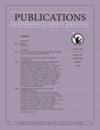AstroDLLC: Efficiently Reducing Storage and Transmission Costs for Massive Solar Observation Data via Deep Learning-based Lossless Compression
IF 7.7
3区 物理与天体物理
Q2 ASTRONOMY & ASTROPHYSICS
Publications of the Astronomical Society of the Pacific
Pub Date : 2024-07-11
DOI:10.1088/1538-3873/ad5b8a
引用次数: 0
Abstract
Effective data compression technology is essential for addressing data storage and transmission needs, especially given the escalating volume and complexity of data generated by contemporary astronomy. In this study, we propose utilizing deep learning-based lossless compression techniques to improve compression efficiency. We begin with a qualitative and quantitative analysis of the temporal and spatial redundancy in solar observation data. Based on this analysis, we introduce a novel deep learning-based framework called AstroDLLC for the lossless compression of astronomical solar images. AstroDLLC first segments high-resolution images into blocks to ensure that deep learning model training does not rely on high-computation power devices. It then addresses the non-normality of the partitioned data through simple reversible computational methods. Finally, it utilizes Bit-swap to train deep learning models that capture redundant features across multiple image frames, thereby enhancing compression efficiency. Comprehensive evaluations using data from the New Vacuum Solar Telescope reveal that AstroDLLC achieves a maximum compression ratio of 3.00 per image, surpassing Gzip, RICE, and other lossless technologies. The performance of AstroDLLC underscores its potential to address data compression challenges in astronomy.AstroDLLC:通过基于深度学习的无损压缩,有效降低海量太阳观测数据的存储和传输成本
有效的数据压缩技术对于满足数据存储和传输需求至关重要,尤其是考虑到当代天文学产生的数据量和复杂性不断攀升。在本研究中,我们建议利用基于深度学习的无损压缩技术来提高压缩效率。我们首先对太阳观测数据的时空冗余进行了定性和定量分析。在这一分析的基础上,我们介绍了一种基于深度学习的新型框架,称为 AstroDLLC,用于无损压缩天文太阳图像。AstroDLLC 首先将高分辨率图像分割成块,以确保深度学习模型的训练不依赖于高计算能力的设备。然后,它通过简单的可逆计算方法解决了分割数据的非正态性问题。最后,它利用比特交换(Bit-swap)来训练深度学习模型,以捕捉多个图像帧的冗余特征,从而提高压缩效率。利用新真空太阳望远镜的数据进行的综合评估显示,AstroDLLC 每幅图像的最大压缩率达到 3.00,超过了 Gzip、RICE 和其他无损压缩技术。AstroDLLC 的性能凸显了它在解决天文学数据压缩难题方面的潜力。
本文章由计算机程序翻译,如有差异,请以英文原文为准。
求助全文
约1分钟内获得全文
求助全文
来源期刊
CiteScore
6.70
自引率
5.70%
发文量
103
审稿时长
4-8 weeks
期刊介绍:
The Publications of the Astronomical Society of the Pacific (PASP), the technical journal of the Astronomical Society of the Pacific (ASP), has been published regularly since 1889, and is an integral part of the ASP''s mission to advance the science of astronomy and disseminate astronomical information. The journal provides an outlet for astronomical results of a scientific nature and serves to keep readers in touch with current astronomical research. It contains refereed research and instrumentation articles, invited and contributed reviews, tutorials, and dissertation summaries.

 求助内容:
求助内容: 应助结果提醒方式:
应助结果提醒方式:


